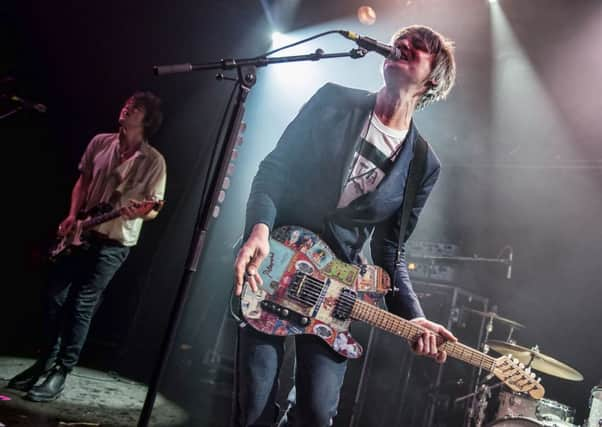Music review: Peter Doherty & The Puta Madres, QMU, Glasgow


Peter Doherty & The Puta Madres, QMU, Glasgow ***
The other thing about Doherty which is clearly apparent is his tangible and genuine enjoyment of the music he makes, and there’s always been something endearingly naïve about the way he lends his work a near-mystical significance.
In this regard, his recent move to formalise his third band project Peter Doherty and the Puta Madres (note the more mature use of his full first name) with this spring’s debut solo album and a full UK tour is less the act of a faded star desperate to remain in the limelight, and more that of a creative person following the compulsion which drives him to do what he does.
Advertisement
Hide AdAdvertisement
Hide AdOne thing that was apparent from this show is that Doherty’s loyal audience has slimmed down over the years, with the venue having been downsized from the much bigger Barrowlands to the University of Glasgow’s Queen Margaret Union.
Another is that Doherty – while still not an entirely predictable onstage presence – now resembles a professional musician, certainly in comparison to some of the catastrophic conditions which he appeared in while fronting Babyshambles.
“This is from my new record,” he gleefully announced before a run-through of the blissed-out Paradise is Under Your Nose, before deferring to his new bandmate and guitarist, Trampoline’s Jack Jones. “Or it’s a Jack Jones song. I wrote about a third of it… a quarter.” Nevertheless, he seemed happy to be singing it and comfortable with the sentiment.
Much of the new material is similarly wistful, for example Someone Else to Be, which segued into an adapted line of Oasis’s Don’t Look Back in Anger which must resonate strongly with Doherty; “if you’re gonna put your life in the hands of a rock n roll band/they’ll throw it all away.”
His personal catalogue with the Libertines and Babyshambles was also widely explored, with F*** Forever creating a languid centrepiece for the encore. Yet there remains a sense that what Doherty needs from his music goes beyond the critical or commercial results.
DAVID POLLOCK